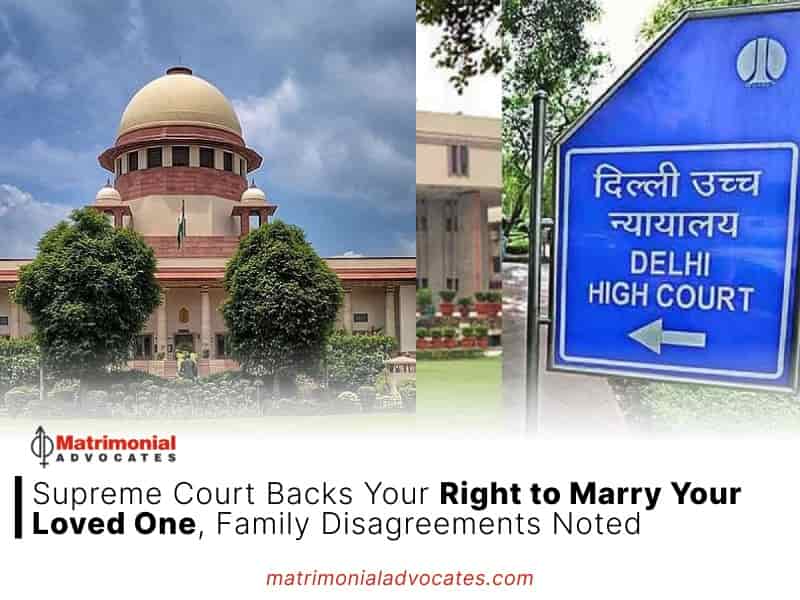
“The right of the petitioners to marry a person of their own choice is indelible and protected under the Constitution, which cannot be diluted in any manner whatsoever,” the court said.
In a recent legal pronouncement, the Delhi High Court articulated the enduring and immutable nature of the constitutional right to marry a person of one’s choice. This constitutional entitlement remains impervious to familial dissent or objection. In response to a petition for security filed by a couple who had encountered threats from their respective families following their matrimonial union, the court extended its judicial imprimatur by granting them police protection.
Justice Tushar Rao Gedela underscored the constitutional imperative resting upon the State to provide protective measures to its citizens, given the paramountcy of this fundamental right. As an institution vested with constitutional oversight, the high court dutifully acknowledges its role in advancing and preserving the constitutional rights held by the aforementioned couple.
“The right of the petitioners to marry a person of their own choice is indelible and protected under the Constitution, which cannot be diluted in any manner whatsoever,” the court said
“There is no doubt about the factum of marriage between the petitioners and the fact that they are major. No one, not even the family members can object to such relation or to the matrimonial ties between the petitioners,” the court asserted while dealing with the couple’s petition for police protection.
The petitioners have attested to the fact that they formalized their marriage in April, notwithstanding parental dissent, and have since maintained a harmonious cohabitation. Nonetheless, they have been subjected to continual threats, primarily originating from the woman’s mother and their respective families.
In consideration of the aforementioned circumstances, the court issued a directive enjoining the State to institute protective measures for both petitioners, with a specific focus on the prevention of harm, especially from the woman’s parents and other family members. Additionally, the court mandated the assigned beat officer to carry out regular welfare visits to ensure their security and well-being.
“In case the petitioners have shifted to a place other than the one shown in the memo of parties, the I.O. shall intimate the said SHO of the concerned police station having territorial jurisdiction over the residential address of the petitioners, who shall comply with the present order in letter and spirit,” the court ordered.
“The petitioners shall disclose their present residential address as well as working address to the I.O., who shall not disclose the same to any unauthorised person,” it said.





